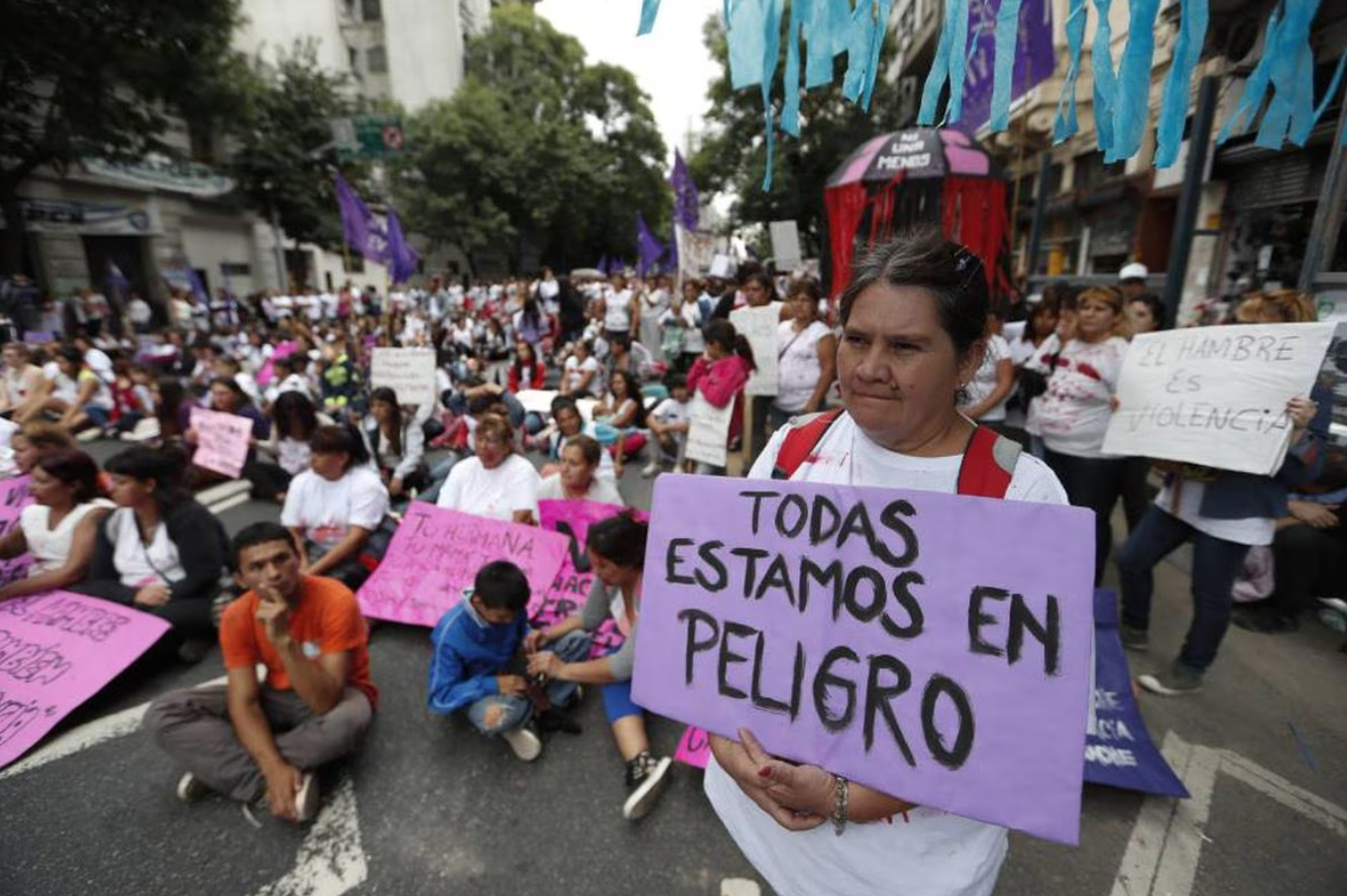Today is International Women’s Day. The date, proposed by the German socialist Clara Zetkin, has its roots in the demands of the feminist movement and the struggles of working women during the 19th and 20th centuries. March 8 was recognized by the United Nations in 1975, on the occasion of International Women’s Year and the First World Conference on Women held in Mexico City. A look at the global panorama of women’s rights reminds us that the date is an opportunity to reflect on their achievements, demand changes, and analyze the long road ahead to achieve truly equal societies and democracies.
Internationally, women and girls compose half of the population and the comprehensive guarantee of their rights benefits society as a whole. Indeed, in addition to being a fundamental human right, gender equality is imperative for democracy and has a positive impact on the economies and progress of countries in all areas.
With this process in mind, the UN General Assembly declared the United Nations Decade for Women (1976-1985), and in 1979 approved the Convention on the Elimination of All Forms of Discrimination against Women (CEDAW). In 1995 the IV International Conference on Women, held in Beijing, claimed women’s rights as human rights and through the Beijing Declaration and Platform for Action established a roadmap for the advancement of women and the achievement of gender equality in areas such as education, health, and politics.
More recently, in 2010, the General Assembly also voted to create UN Women, a body whose goal is to advance gender equality and women’s empowerment. In addition, the 2030 Agenda for Sustainable Development establishes gender equality as the fifth goal, conceived as an essential foundation for building a peaceful, prosperous, and sustainable world.
Despite the narrowing of some gaps and important advances in recent decades, such as the increase in laws and institutions in favor of equality, the greater presence of women in politics, and the improvement in their educational and salary levels, the problems and difficulties faced by women and girls globally are enormous. According to UN Women, one in three women in the world has experienced physical or sexual violence in her lifetime.
Due to the widespread existence of discriminatory laws, women also experience various difficulties that impede their full human and professional development. Women and girls are the main victims of sexual violence during conflicts, they are particularly affected by phenomena such as human trafficking and smuggling, and despite the existence of quotas and parity laws, they continue to be underrepresented at the political level.
According to a report by the Jean-Jaurès Foundation and the feminist organization Equipop, women’s rights are going backward all over the world. This process is not only the result of the pandemic that has exacerbated inequalities, tripled women’s care, and exponentially increased the violence, lack of jobs, and precariousness to which they are exposed. What some call a backlash against women’s rights is rather the result of an alliance of heterogeneous groups, including conservative parties and movements, fundamentalist and anti-rights sectors.
Following the return of the Taliban, the recent bans on women and girls in Afghanistan from working or going to school are just one example. Women who opposed the imposition of these measures were threatened, imprisoned, and tortured, according to Amnesty International. But retreating is widespread: the revocation of the right to abortion in the United States, its increasing restriction in countries such as Poland, or Turkey’s withdrawal from the historic Istanbul Convention against gender-based violence, are examples of the loss of acquired rights for women and girls at the global level.
António Guterres, UN Secretary-General, pointed out that achieving gender equality and empowering women and girls are pending tasks of our time and constitute the greatest human rights challenge at the global level.
In Latin America, the situation is also contradictory. According to ECLAC’s Gender Equality Observatory, the region has some of the highest rates of gender inequality, violence, and discrimination in the world. In Latin America, being a woman is a risk factor and multiplies the possibilities of suffering various forms of violence, the most extreme version of which is femicide.
The feminist movement is a pulsating actor in the region and mobilizations to fight against discrimination and violence and to guarantee rights are widespread, but structural changes are required, redefining gender roles and gradually transforming the beliefs and social norms that sustain inequalities.
A significant contribution is the construction of parity democracies, understood as systems that position parity and substantive equality as central axes of political participation and representation in all spheres. Although this objective contemplates the creation of quota and gender parity laws, parity is not restricted to the advancement of women’s numerical representation, but implies full recognition of their rights. It is an integral concept that transcends the political sphere and is based on the fact that women are full citizens, must participate in decision-making, and can contribute solutions to common problems.
In our region, initiatives such as Ateneaesparidad or the Red de Politólogas #NoSinMujeres support this proposal and make visible the fact that women matter and without them there is no democracy or comprehensive socioeconomic development. However, today and always, gender equality and the construction of parity democracies should be everyone’s task.
*Translated from Spanish by Janaína Ruviaro da Silva












